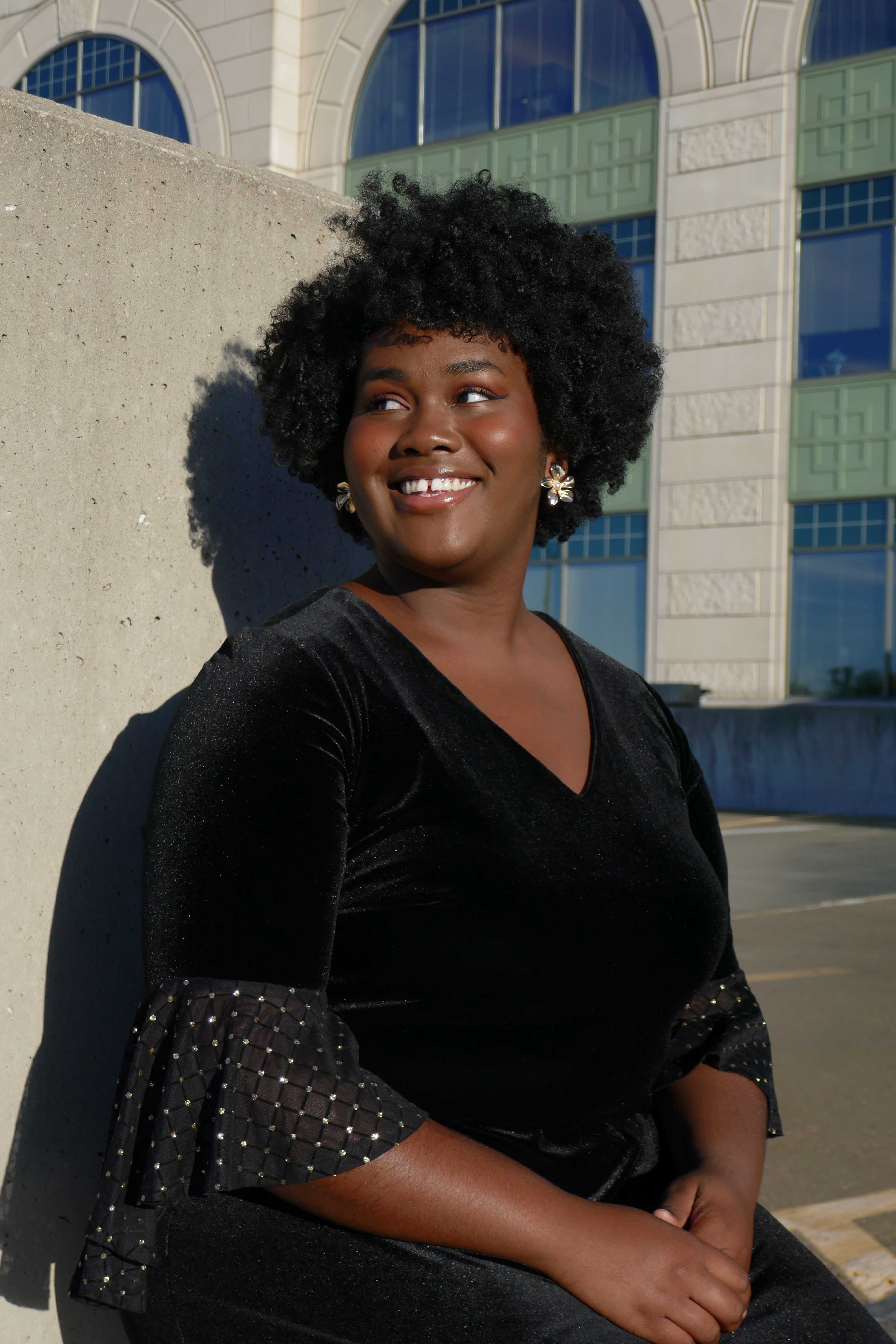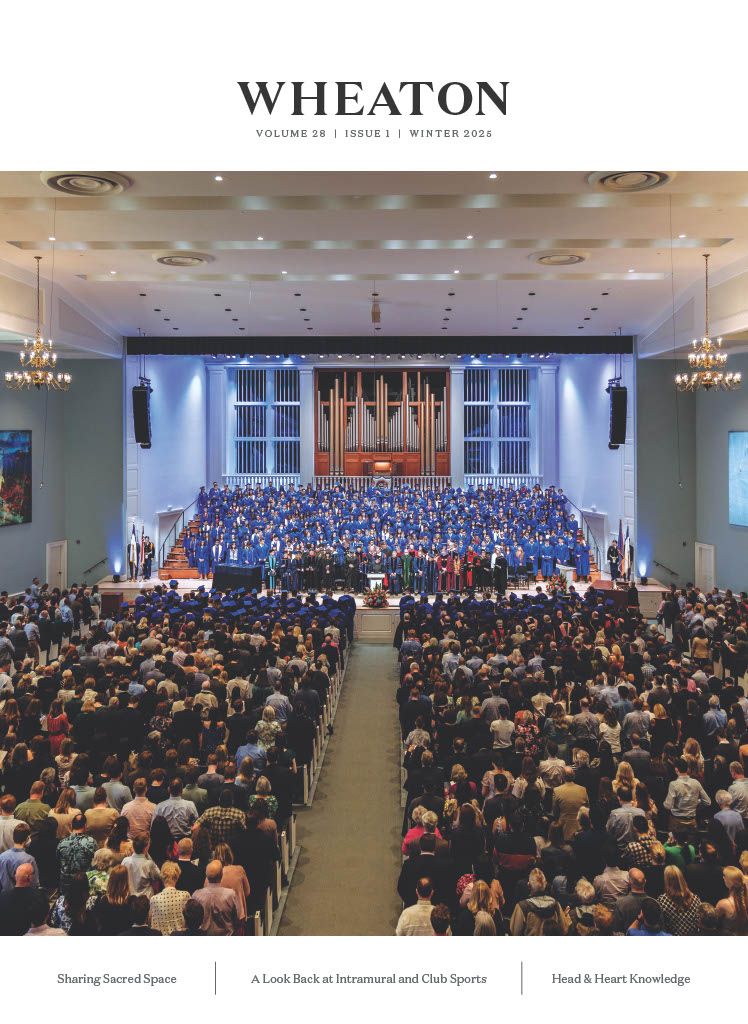Music and Mentorship: Identity Formation Through the Arts and Community
Words: Juliana Bacote ’24
Photos: Hannah Morris ’26

Kaya Walcott ‘25
Kaya Walcott ’25 knows firsthand how teachers and mentors can change a person’s life.
Before college, Walcott learned from her mother, her first vocal influence, and later studied with music teachers who provided encouragement and voiced the talent they saw in her. “I’d always really respected my past music teachers,” she said. “They poured into me and built my confidence. A lot of the person who I am now is because of women who encouraged me to pursue singing.”
Walcott initially didn’t feel the need to go to a Christian school. But her mentor, whom she met five years ago through the mission agency her family is connected to, prompted her to consider how Walcott could be on the mission field in different spaces and use her gifts to positively influence those around her. Attending a performing arts high school at the time, Walcott soon connected this new perspective to her love for music.
Walcott’s father encouraged her to apply to at least one Christian school despite her initial hesitation. When she researched the top Christian schools in the U.S. with music programs, she came across Wheaton, and it stuck out to her. “God is very intentional,” Walcott said. “It wasn’t a mistake or coincidence, and I always think about how my dad was so integral to me coming to Wheaton. I’m very grateful that I ended up here.”
Walcott’s experience in Wheaton's Conservatory is characterized by the staff and faculty she has established meaningful relationships with. “Being in the Conservatory has shown me how music is God’s creation and is something he wants us to explore. We’re not just learning music for music’s sake. That was at the forefront of what all of my teachers have taught me,” Walcott said. “I’ve had very loving, spiritually minded, and kingdom-minded professors who have made all the difference.”
Her professors incorporate faith into the classroom in profound and, sometimes, surprising ways. For example, in her conducting class with Associate Professor of Music and Symphony Orchestra Conductor Dr. Benjamin Klemme, Walcott and her classmates were asked to draw parallels between Jesus as the Good Shepherd and the ways that they—as beginner-level conductors—could lead musical ensembles. Walcott sees the Conservatory’s core as being a celebration of God expressing himself through music, which has reframed her relationship with the discipline throughout her college experience. “I am in fellowship with the Lord when I sing or do things that are musical,” said Walcott.
Conservatory faculty also possess a deep love for and investment in their students. Many of them have cared for her and demonstrated understanding and flexibility when she needed it most. Dr. Donté Ford, who serves as Assistant Professor of Music and Associate Chaplain for Worship Arts, is one such professor who has played an integral role in Walcott’s life. In addition to him and his wife welcoming Walcott into their home for meals since her freshman year, Ford also provides opportunities for Walcott to sing and makes room for her gift in spaces that she could not get into on her own. Since she often experiences imposter syndrome as a student, these invitations are meaningful to her. Ford and Walcott also share a background in musical traditions of the black church, which has given her space to exist authentically and find a sense of community. “It’s like home,” said Walcott. She is grateful for how Ford looks out for her and other black students in the Conservatory with kindness. “Dr. Ford is like my big brother,” she added.
As a music education major, Walcott also has the opportunity to be on the other side of the classroom and work with students of her own. “When you’re doing practicum, you’re not going often, so when I teach, it’s a bit awkward sometimes,” said Walcott. “But they’re really sweet, and seeing them every day will really grow my connection with them.” She strives to have a significant influence on her current and future students, just like her teachers have had on her life.
Walcott also devotes time to her fellow students at Wheaton. For two years, she served as student chaplain for the William Osborne Society, Wheaton’s black student organization housed under the Office of Multicultural Development (OMD). In this role, she provided prayer, advice, and encouragement to her fellow black students. She found it important to seek out black students and make sure they were well. Throughout her time as a student, she also spent significant time with Sisterhood, the College’s student organization for black women on campus. “Being so invested in the black community on campus was very important to me,” she said. “Sisterhood has my heart. I wouldn’t have survived without the black women on this campus.”
As a Conservatory student actively involved in the OMD, Walcott has learned to balance her commitments in these communities she cares deeply about, and use her experiences in both communities to benefit the other. “I bring the knowledge that I gained in one space into the other,” said Walcott.
Having completed her senior recital this fall, Walcott is excited to see what comes next after graduation in the spring. “Conservatory staff and faculty want to see us off well,” she said. “They’re always making opportunities in the area known to students, initiating connections, and providing useful resources, in addition to hosting sessions where people in the field come to speak about their experiences with current students.”
Reflecting on her time in the program, Walcott expresses gratitude. “I think it’s been a great space for me to learn how to come up with language to talk about music and learn how to use my gifts,” she said. “God put me here for a reason, and I give him all the glory for the ways that he has worked in my story.”




